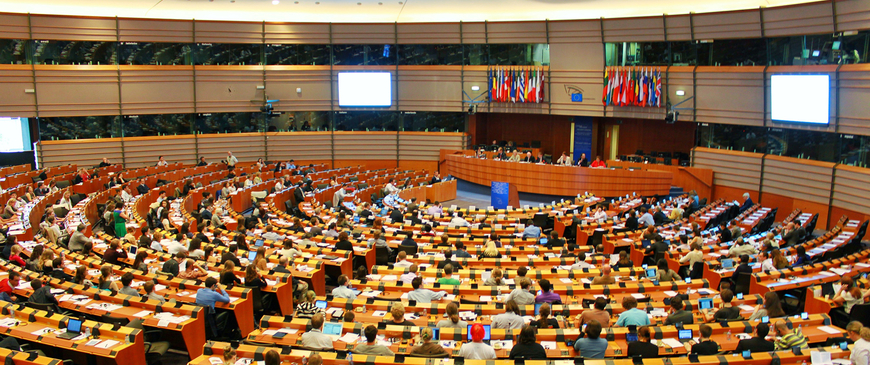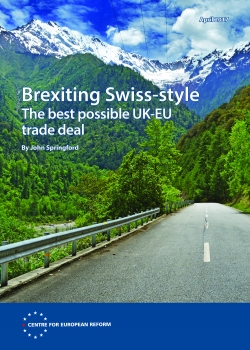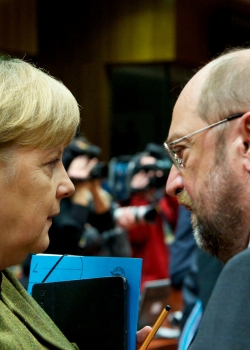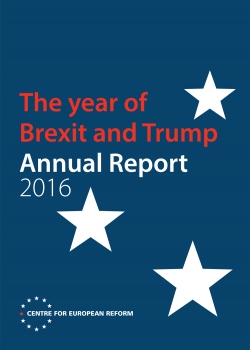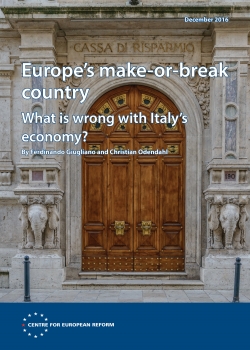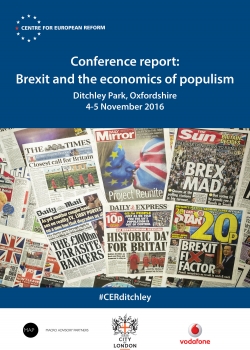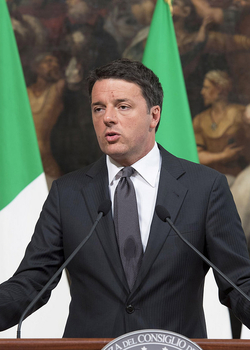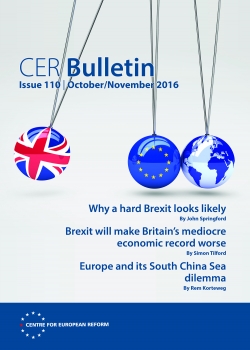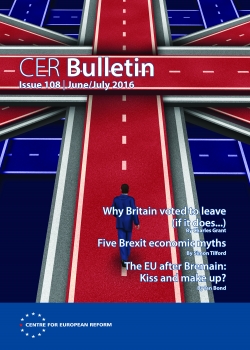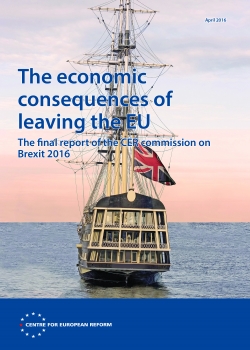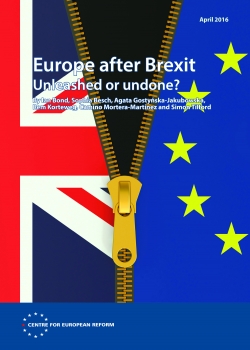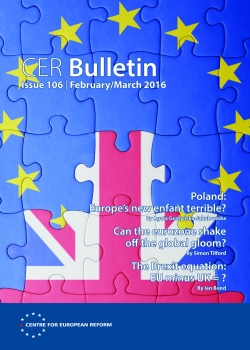Macroeconomics & the euro
Bulletin Issue 114 - June/July 2017
24 May 2017
- Why no deal would be much worse than a bad deal, John Springford, Simon Tilford
- Macron, Merkel and the future of the euro, Charles Grant
- Europe's forgotten refugee crisis, Camino Mortera-Martinez
Brexiting Swiss-style: The best possible UK-EU trade deal
24 April 2017
The softest form of hard Brexit that is plausible – given the red lines of the 27 and Britain – is something like Switzerland's deal with the EU.
Is the EU's single market leading to convergence or divergence?
04 April 2017
The single market's 'agglomeration effects' – the tendency of wealthier areas to attract capital and skills – seem as strong as the 'catch-up effects' of poorer members importing capital and expertise.
Can Martin Schulz beat Angela Merkel?
20 March 2017
A chancellor Schulz would be good news for the eurozone economy. But he would not differ much from Merkel on Brexit.
The year of Brexit and Trump: Annual report 2016
13 February 2017
The CER's annual report features essays on how Brexit and Trump are changing the world. It also highlights CER research on Brexit, economics, foreign policy and much else.
Crisis of capitalism? Perhaps, but don't blame it on globalisation
10 February 2017
Globalisation did not force governments to adopt policies that divided their countries, exacerbated inequality and hit social mobility. Many of them did those things by choice.
Europe's make-or-break country: What is wrong with Italy's economy?
19 December 2016
Italy's economic problems are a threat to the eurozone and the EU as a whole. While the euro has not helped Italy, its problems are mainly homegrown.
Brexit and the economics of populism
12 December 2016
Inequality, insecurity and a nativist backlash against immigration all help to explain the rise of populism. But globalisation does not prevent governments from addressing these problems.
Has the ECB started to tighten the screws?
08 December 2016
Given the continued weakness of inflation, the ECB was always going to extend its bond purchasing programme (‘quantitative easing’ or QE) beyond its previously scheduled end in March 2017.
Italy's referendum: Much ado about little
28 November 2016
Whatever the outcome, Italy's referendum is not the watershed moment in Italian politics many are making it out to be.
Brexit will make Britain's mediocre economic record worse
19 September 2016
Britain is already an average economic performer by Western European standards. Brexit will further sap its economic dynamism and aggravate startling regional disparities
Bulletin Issue 110 - October/November 2016
19 September 2016
- Why a hard Brexit looks likely, John Springford
- Brexit will make Britain's mediocre economic record worse, Simon Tilford
- Europe and its South China Sea dilemma, Rem Korteweg
Long day’s journey into economic night
11 July 2016
Economic developments in Britain since the referendum suggest that a recession is coming. And the politics of the negotiation with the EU suggest the country will suffer a prolonged period of weak economic growth.
NATO defence spending: Money can't buy you solidarity
06 July 2016
NATO allies have halted the trend of decreasing defence budgets. At the Warsaw Summit, they should work to translate spending levels into a stronger military posture for the alliance.
Bulletin Issue 108 - June/July 2016
27 May 2016
- Why Britain voted to leave (if it does...), Charles Grant
- Five Brexit economic myths, Simon Tilford
- The EU after Bremain: Kiss and make up?, Ian Bond
Five Brexit economic myths
26 May 2016
Key Brexiter arguments – EU regulation and immigration are costly; the EU damages UK trade and investment; Brexit would bring fiscal gains – have no basis in reality.
The economic consequences of leaving the EU: The final report of the CER commission on Brexit 2016
21 April 2016
After leaving the EU, the UK would face an invidious choice: sign up to EU rules and the free movement of labour, or suffer economic damage.
Europe after Brexit: Unleashed or undone?
15 April 2016
If Britain left the EU, the character of the Union would change. The UK has driven economic liberalisation and foreign policy co-operation, and has made the EU's machinery more efficient.
Time for a regime change in Frankfurt
08 March 2016
To get eurozone inflation back to the 'close to 2 per cent' target, the ECB needs to be much bolder – and needs fiscal help.
Bulletin Issue 106 - February/March 2016
22 January 2016
- Poland: Europe's new enfant terrible?, Agata Gostyńska-Jakubowska
- Can the eurozone shake off the global gloom?, Simon Tilford
- The Brexit equation: EU minus UK = ? , Ian Bond

